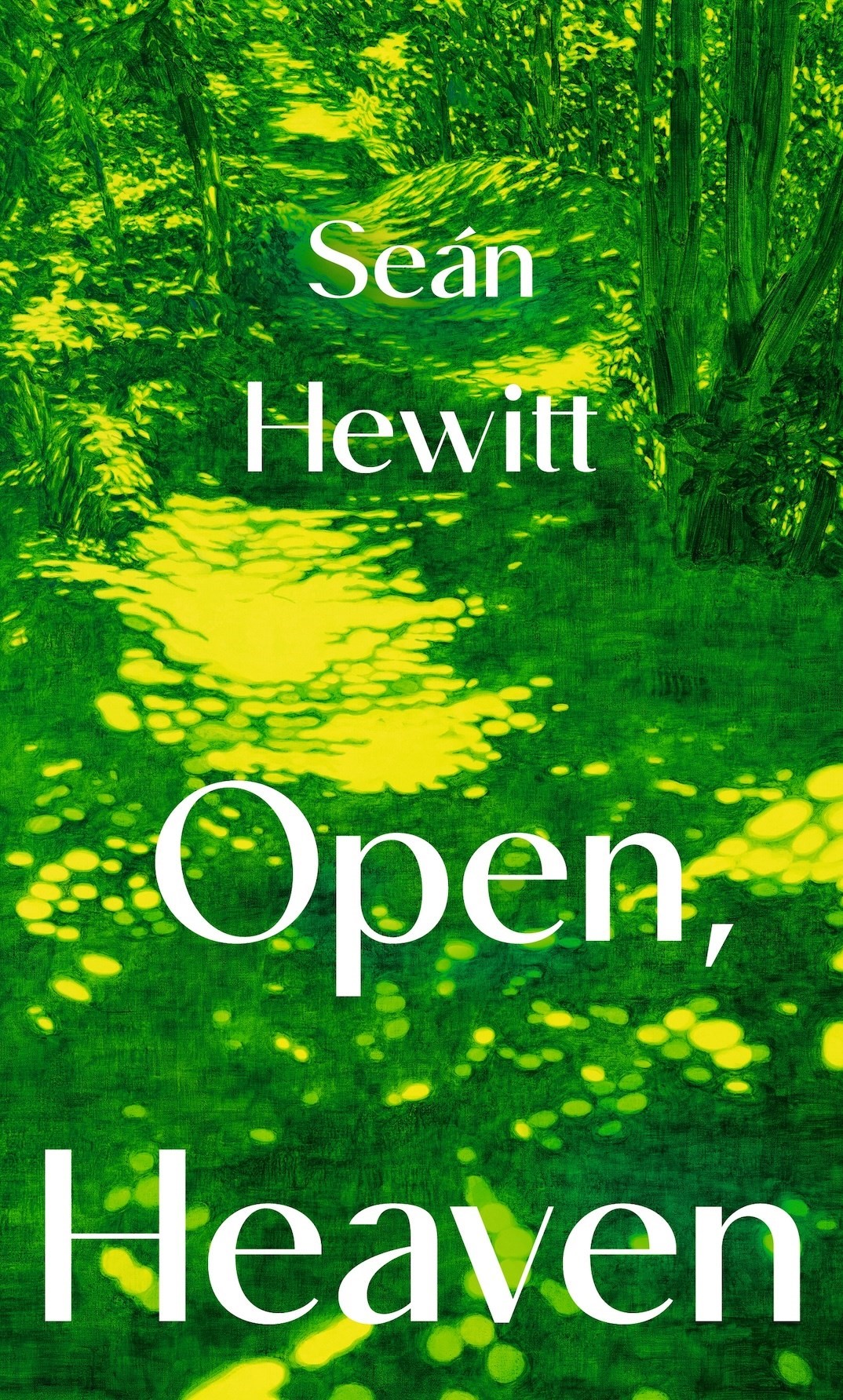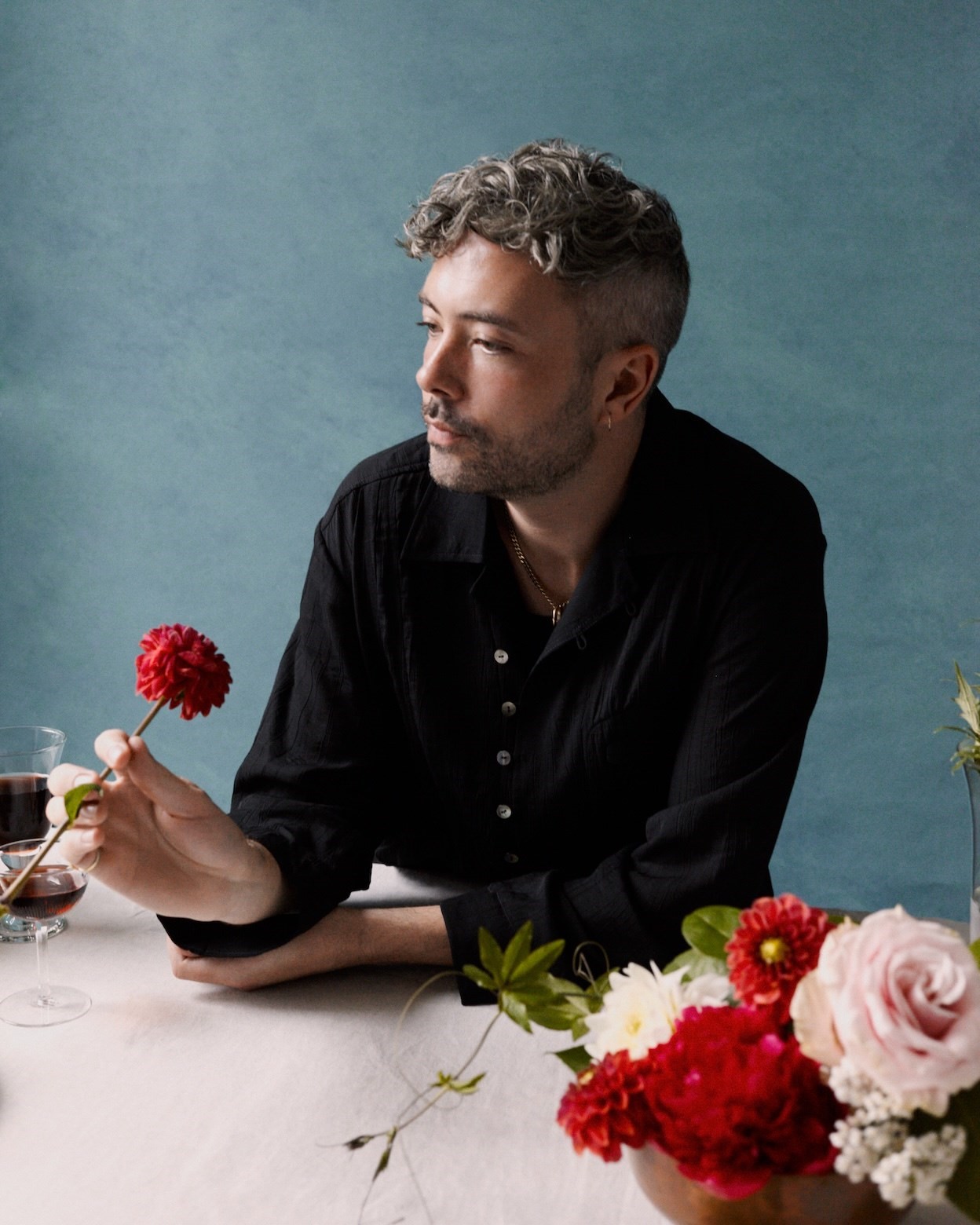Poet and memoirist Seán Hewitt’s debut novel Open, Heaven is not a bucolic, summery love story. At least not entirely. Predominantly set in the early 2000s in the small fictional village of Thornmere, somewhere in the north west of England, the book follows protagonist James, a delicate and isolated gay teenager overwhelmed by an untameable and seemingly hopeless desire for love, sex and companionship. When he meets Luke, a beautiful but troubled older boy sent to live with his aunt and uncle on a nearby farm, the pair forge a bond with the potential for the love James craves.
As the seasons pass and James spirals into an obsessional and desperate first love, he’s tortured by whether his feelings are reciprocated by Luke. Through compelling interiority, Hewitt conjures the all-consuming and unruly tempest of James’s affections, as he flits between anxious longing, conflicted and often-abject fantasies, his attraction to the violence of masculinity, and a sense of willing supplication: “I would make myself into whatever shape he wanted,” James thinks at one point, “I would be anyone for him.”
Anyone who has experienced limerence will recognise James’s mental bargaining and the idealised fiction he projects onto Luke. But Hewitt also captures how first love can haunt us. “I think it creates a pattern for how you experience love in the future,” he says over Zoom from Dublin, where he lives. “I think it shapes a person, and I was interested in the effects of that shaping and how it feels finding your way through something that you’ve never found your way through before.”
Below, Seán Hewitt talks to AnOther about queer desire, erotic imagination, and the role of memory in Open, Heaven.

Alim Kheraj: The novel opens and closes with James as an adult divorcee remembering the year when he met Luke. Why did the narrative need that framing?
Seán Hewitt: I wanted to give a sense of the stakes of the book. This is not necessarily about the events of one year, but the things that are set into motion by that one year that might recur throughout different ways throughout our life.
One of the things at the heart of the book is that James confuses love and desire. Love, I think, can be reciprocated. But for James, the moment desire is reciprocated, it is no longer desire. He’s hooked on longing, and I was interested in what the repercussions would be of that in later life. My question for the sections set in 2022 was how much to wrap up what happened. I wanted to leave unanswered questions that are still troubling the character. And maybe we don’t believe half of what he is telling us. There are parts in the prologue where he openly admits that there are certain things he’s not going to talk too much about. He is avoiding things. So using memory gave the book a texture of doubt that I thought was useful for exploring the doubt of that year with Luke.
AK: James is haunted by Luke, both as an adult but also as a teenager, as the version of Luke he’s in love with doesn’t really exist. What is your experience of that kind of self-generated haunting?
SH: As I was writing the book, I became interested in the way that love is an instigator of fiction in ourselves and our daily life. I think when you fall in love, you begin to tell yourself stories about possible futures, the possible sort of person that you’re in love with, and it leads you to ignore other versions of the story because you don’t want to hear them. You think you’re in love with this charming, perfect person, and even when they show you otherwise, you ignore it, because your story is more compelling.
I’m very interested in the sort of stories that we tell ourselves, and what happens when those stories are proved untrue to us, and what that does to us. I guess the key question is: how much of the world is real? How much of it is a story that we tell ourselves? And does it matter? I think love is always a sort of self-generated story, even if it’s reciprocated.
“When you fall in love, you begin to tell yourself stories about possible futures, the possible sort of person that you’re in love with, and it leads you to ignore other versions of the story because you don’t want to hear them” – Seán Hewitt
AK: How much is Luke trapped by James’s fantasy?
SH: As I was writing, there were moments at which I just thought, “Poor Luke.” Without giving straight men too much credit, I think that there are a number of straight men who have borne my infatuations or desires over the years with a lot of grace. And in some ways, it’s the grace that’s painful because they’re nice to you, and then your imagination starts going off. I felt sorry in some places for subjecting Luke to James, because I think James also is constantly reading into every situation, and Luke is just there existing. Luke also has a lot going on in his own life, which James is brushing past to get to what he wants from him.
AK: James’ fantasies about straight men often involve being a stand-in for a woman or are built around being supplicant. What do you think that says about queer desire, especially as an adolescent?
SH: There’s this book called The Go-Between by LP Hartley, which is about a young boy who becomes a messenger between two adults who are having an affair. There’s a sense that he kind of fancies both of them and that by taking letters between them, he’s somehow involved in this illicit desire. And I think there’s something about proximity to desire which is enticing, especially for a queer teenager because you’re surrounded all the time by heterosexual desire. It’s the thing that is charging the entire atmosphere of culture, but as a queer person you don’t really have a place in that. You’re being looked past. So if you’re thinking about the direction of gaze, James is aligning himself on the side of the girls, or wishing he could at least stand where the girls stand, in the gaze of the boys, because that’s the only way he can feasibly imagine being on the receiving end of desire.
I remember having a lot of confusing feelings as a teenager, and while they were not all morally great feelings to have, I wanted the book to provide space for the messiness of desire. James doesn’t want to be a girl. He isn’t a girl. He’s just excited by the idea of being desired. And so he begins to kind of offer up visions of women as a way of joining the club.
“I wanted the book to provide space for the messiness of desire. James doesn’t want to be a girl. He isn’t a girl. He’s just excited by the idea of being desired” – Seán Hewitt
AK: James is also attracted to this potential for cruelty and violence in sex, which is something you explore in your memoir All Down Darkness Wide. Why are you interested in that eroticisation of danger?
SH: I’m interested in those places of risk and fear that are at the bottom of so many compulsions that are still underspoken about. People don’t want to admit them because they lead to all sorts of moral questions that we don't want to talk about. We also don’t want to admit that we’re, I think, still relatively puritanical. We don’t like to speak openly about what it is fuelling so many of our fantasies and erotic ideas.
There’s such a strong relationship between self-esteem and fantasy, and James has such low self-esteem that he associates confidence and violence. Those things have become charged to him as masculinity. And I think he feels so far outside of masculinity that he wants to be subject to it in some ways. James makes Luke into this idealised form of masculinity that he is most interested in breaking his way through to because it’s the thing that he has never been able to have. So there’s an erotic charge there that is spinning out fantastical ideas. But Luke is a person, so that’s why it all kind of comes crumbling down.
AK: James is excluded from masculinity, but also by the nature of being a man is a part of it, too. Why did you want to explore that?
SH: I think, instinctively, when people say masculinity, I feel as if it has nothing to do with me, as if masculinity is something I observe in other men, but not something I partake in. James is an observer of men, but not necessarily in with them. He doesn’t really understand what men are doing. Like a lot of young queer boys, he feels more at home among women. But increasingly, because of maturity and puberty, he feels blocked out of femininity. He’s left in this hyphenate place.
“Masculinity is a buzzy word right now, but I have a feeling that underneath is another word, which is heterosexuality” – Seán Hewitt
James is very self-conscious about these questions of gender and performance in a way that maybe Luke is not. Luke is just acting them because they’re inherent to who he is at any given time. Again, it comes down to projection. James has this idea of what boys are like, which is kind of violent, bullish, somewhat misogynistic, and he’s quite disarmed, and maybe even disappointed, by Luke not offering that version at all times. But in some ways it’s about the loneliness of his own gender role, because he doesn’t really have anyone around him who’s experiencing or exhibiting the same sort of gender characteristics as he has.
Masculinity is a buzzy word right now, but I have a feeling that underneath is another word, which is heterosexuality. That’s not at all to absolve queer men from adopting often negative forms of masculinity as either survival methods or ways of aping prestige in society that they might feel is associated with certain forms of masculinity. But it’s a much messier and more complicated subject for queer people than it is for straight people. And maybe the reason that we feel like it’s not much to do with us is because it originates from heterosexuality.
Open, Heaven by Seán Hewitt is published by Penguin Random House, and is out now.
